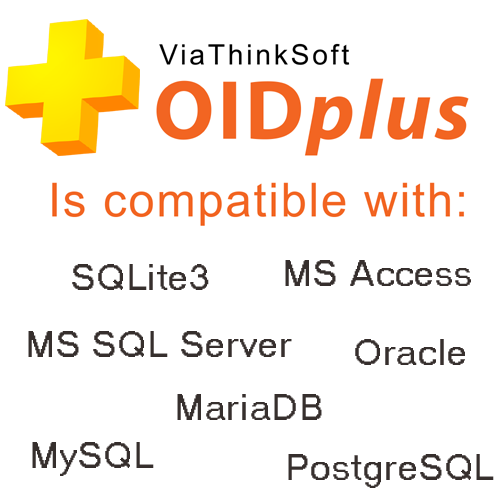
Manage all your Object Identifiers in a single place.
With OIDplus, you can manage all your Object Identifiers (OIDs). You can browse through the OID tree and allocate subsequent object identifiers together with ASN.1 identifiers, Unicode labels, and descriptions. You can either allocate subsequent OIDs to yourself, or to other persons, who can log in to your OIDplus system to manage their OID independently.

You decide. Choose and modify designs.
The design of OIDplus can be defined by plugins. By default, there are two different basic design plugins installed. For each basic design, you can invert the colors, and change hue, saturation, and lightness.
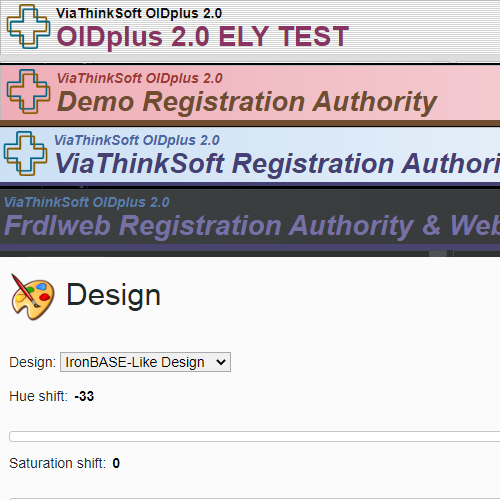
OID Information Protocol: The WHOIS for Object Identifiers
OIDplus supports the OID Information Protocol, which allows exchanging information about OIDs in a way that is both human-readable and machine-readable. The access is via the WHOIS (TCP port 43) protocol with prefix "oid:" or via HTTP/HTTPS request. The output can be text based, XML or JSON.
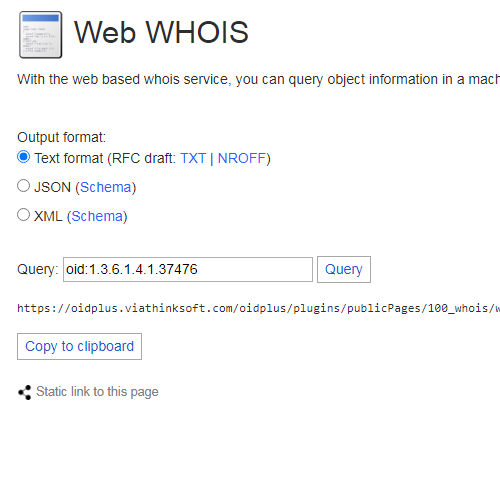
Include documents and resources
To display additional content in OIDplus, you can place HTML and URL files in a resource directory. This way, you can include things like an impress, privacy statement, user manual, guidelines, hyperlinks to your websites and products, and so on.

Many plugins
A large amount of functionality is put into plugins. With this plugin framework, you can extend OIDplus in many ways. There are more than 10 plugin types!
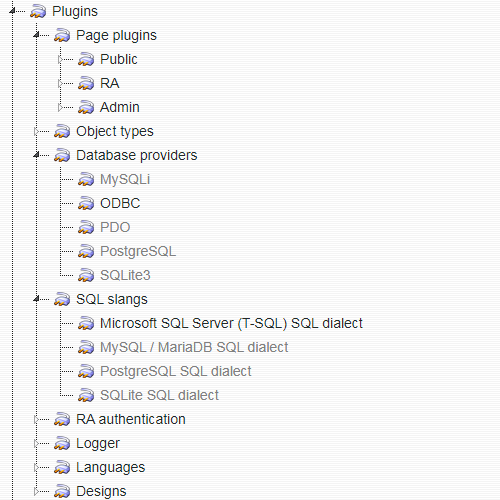
Import and export OIDs from and to oid-base.com
oid-base.com is the world's largest repository for Object Identifiers. If you start using OIDplus and have already OIDs of yours listed at oid-base.com, you can import them into OIDplus. Once OIDplus is fully operational, OIDs you allocate can be automatically exported to oid-base.com (this feature can be disabled, of course).
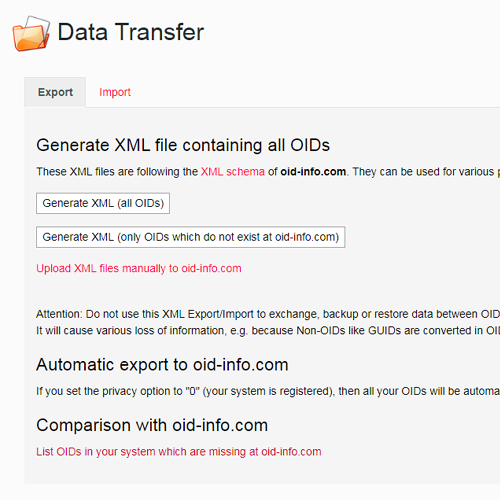
Many different Object Types
The "plus" in name of OIDplus refers to alternative object types that can be managed beside Object Identifiers. In OIDplus, you can manage things like GUIDs (used for the Microsoft Common Object Model), IP addresses, Java package names, and much more. In case you have an Object Type which is not yet included, you can easily write an "Object Type" plugin.
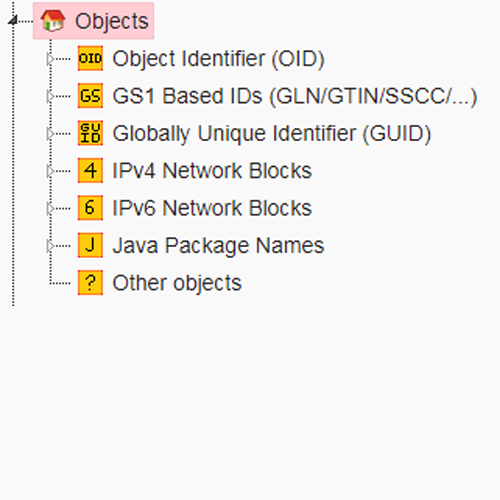
Log in using password or OAuth
The Registration Authorities can log in using a normal password, or using alternative login methods like OAuth (Google, Facebook) or LDAP (e.g. ActiveDirectory).
If you already have a database table that contains users and passwords
of a different software solution,
you can re-use the existing password hashes of the users!
OIDplus supports various hash formats like MD5, SHA1, SHA2, SHA3, or BCrypt, salted, and unsalted.
In case your existing hashes have a foreign format, you can also create individual
"Auth" plugins to support them (these plugins decide wheater a hash fits a password or not).
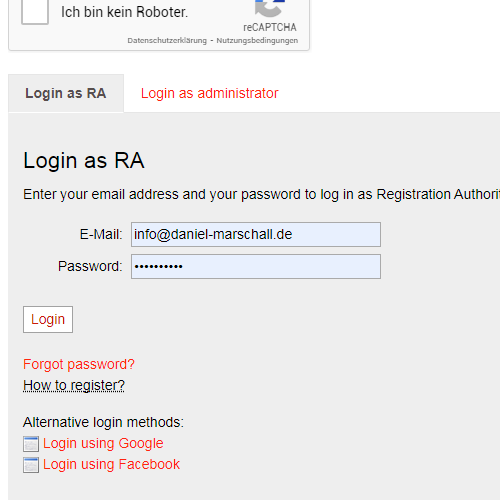
Automatic OID allocation plugin
The functionalities of OIDplus can be extended by installing plugins. For example, the "Free OID" plugin is a plugin that automatically allocates OIDs to persons who verify their email address.

Integrated search
You easily find an Object Identifier in the system by using the integrated search
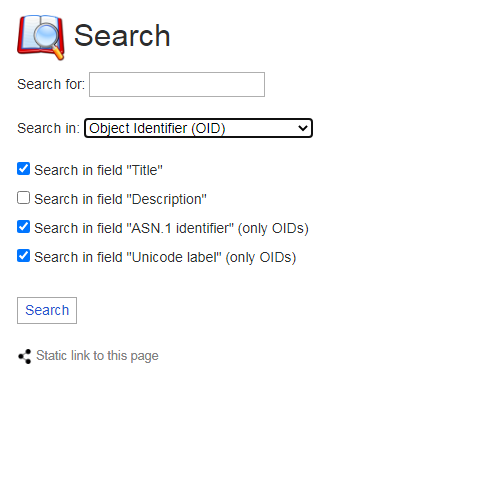
RESTful API and Automated AJAX calls
Third-party applications can update or create OIDs and many other things by invoking automated AJAX calls (this is similar to RPC) or by using the RESTful API. Third-party plugins can provide their own REST API endpoints.
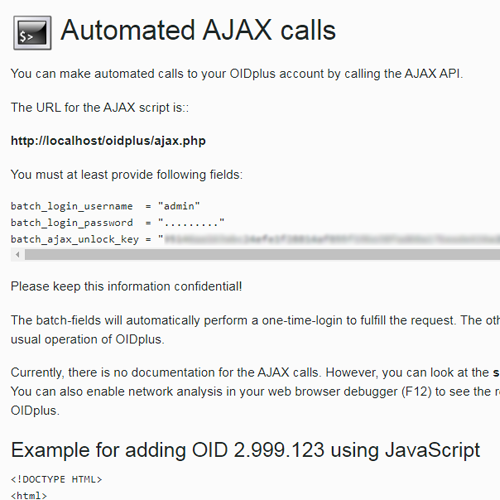
Multilingual interface
OIDplus can be translated very easily since all messages and user interface texts are stored in an XML file in of language plugin. Currently, OIDplus is fully translated into German and English (USA).
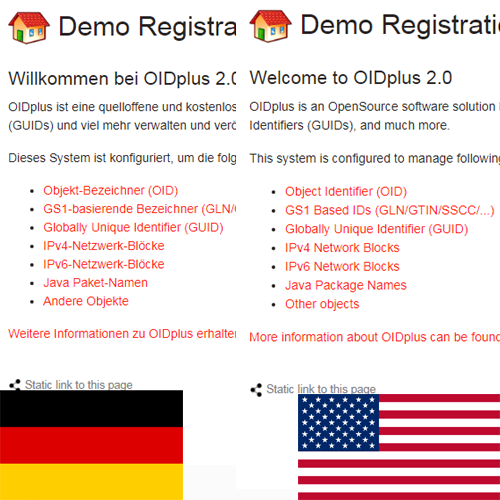
Append file attachments
At each OID, the system administrator or Registration Authority can append files, for example, if an OID identifies a Management Information Base, then the MIB file, as well as any additional resources, can be attached and downloaded by visitors or employees.
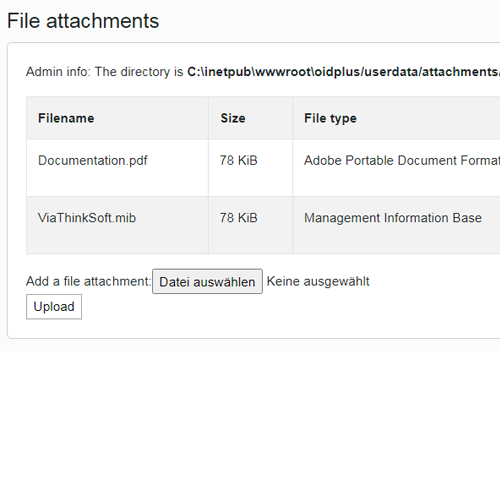
Supports many Database Management Systems
To make sure that OIDplus runs on most systems, we have decided to support as many Database Management Systems (DBMS) as possible. Currently, OIDplus supports MySQL/MariaDB, Microsoft SQL Server, PostgreSQL, Oracle, Microsoft Access, SQLite3, and Firebird, either via native PHP extensions, ADO, ODBC, or PDO.
